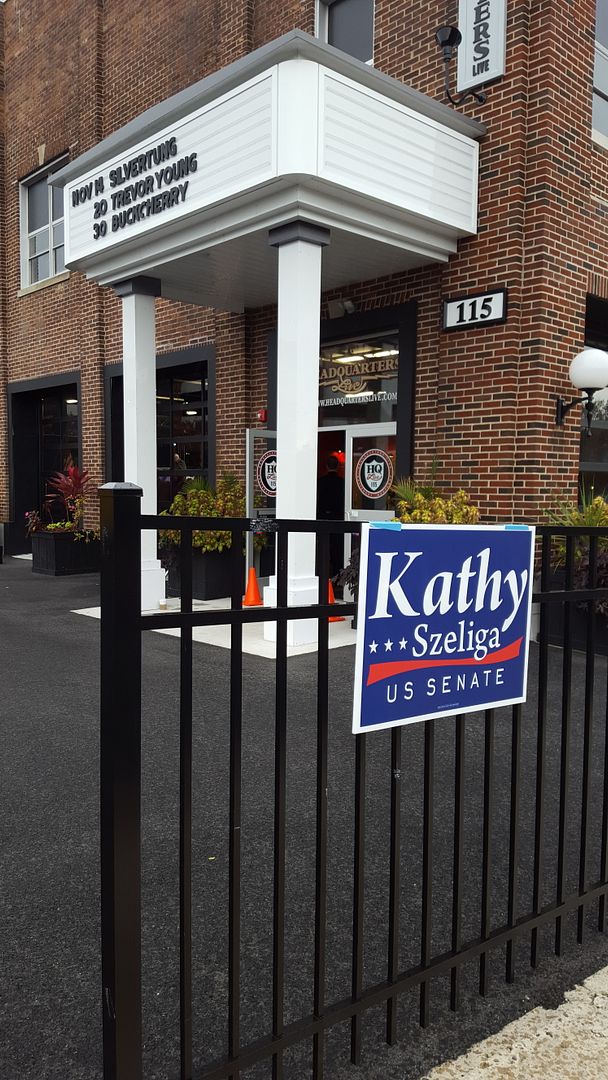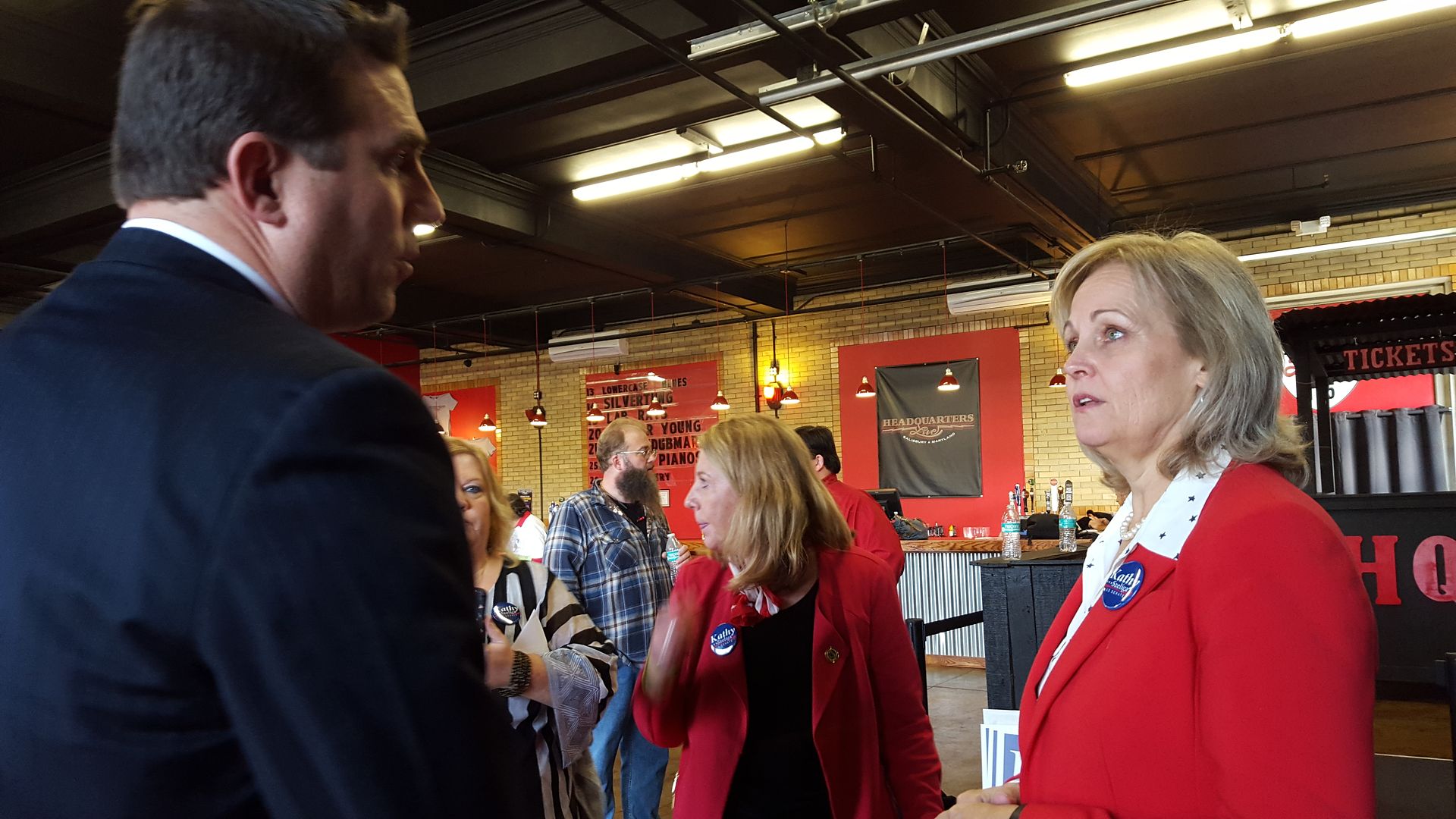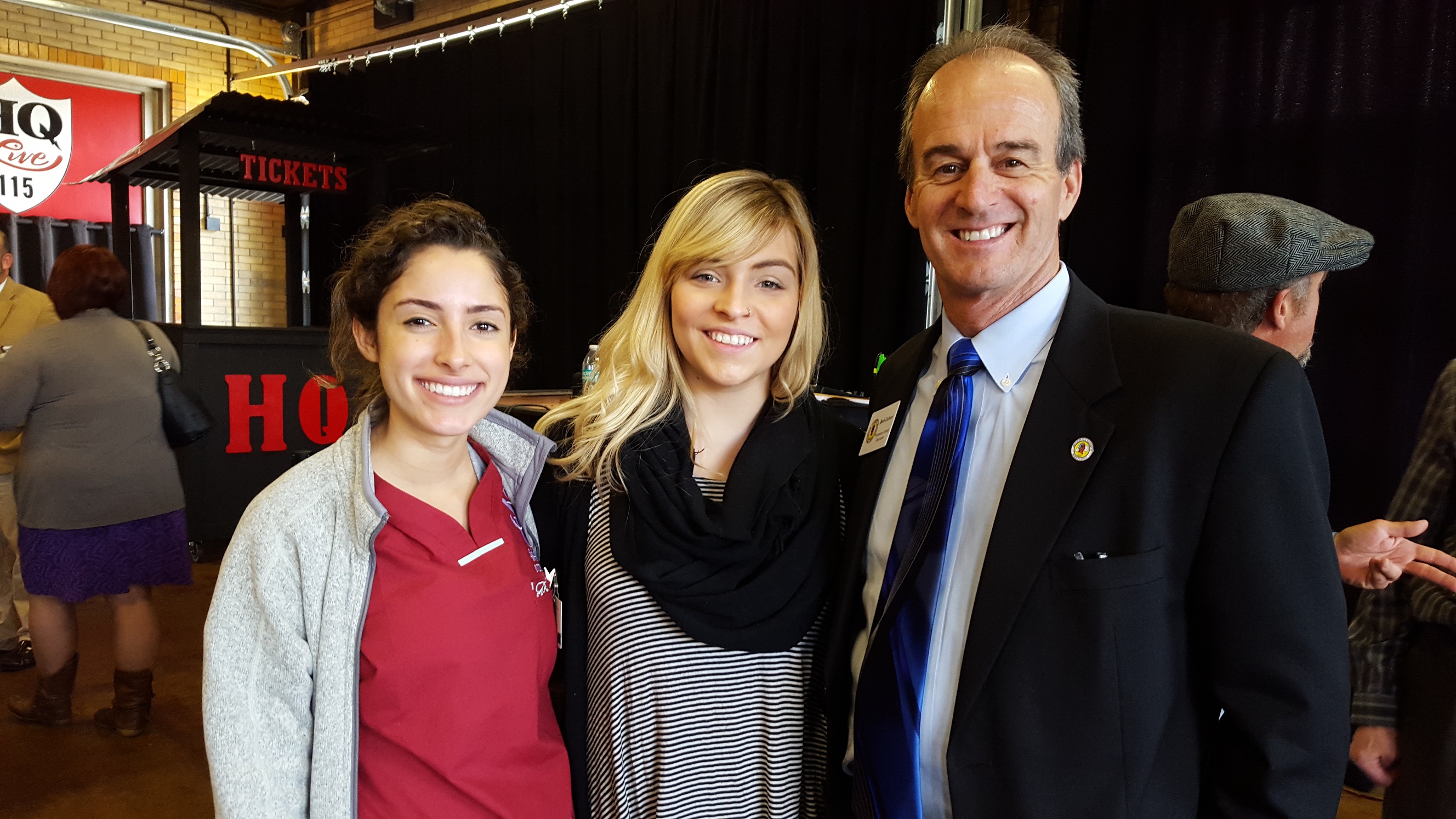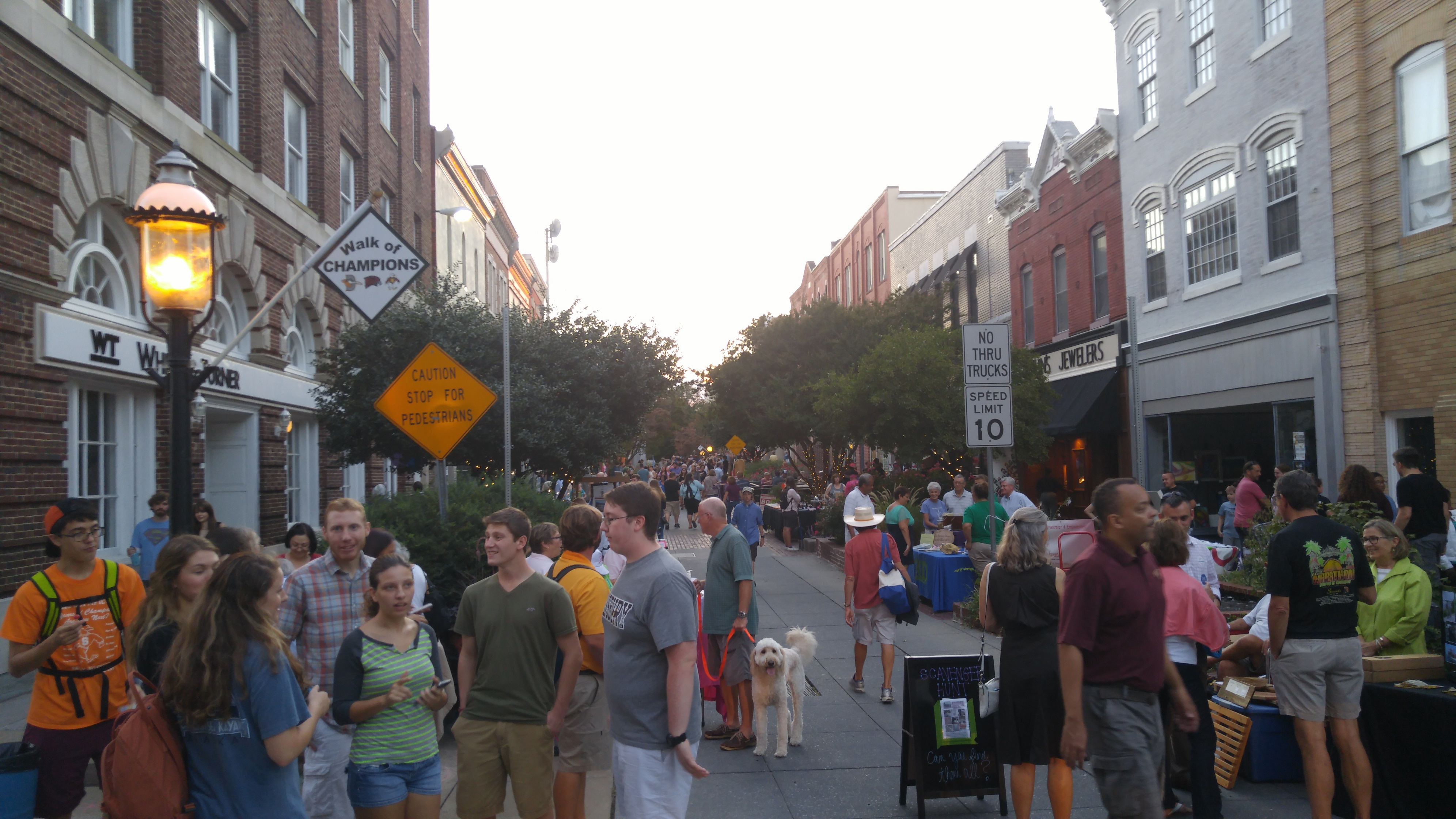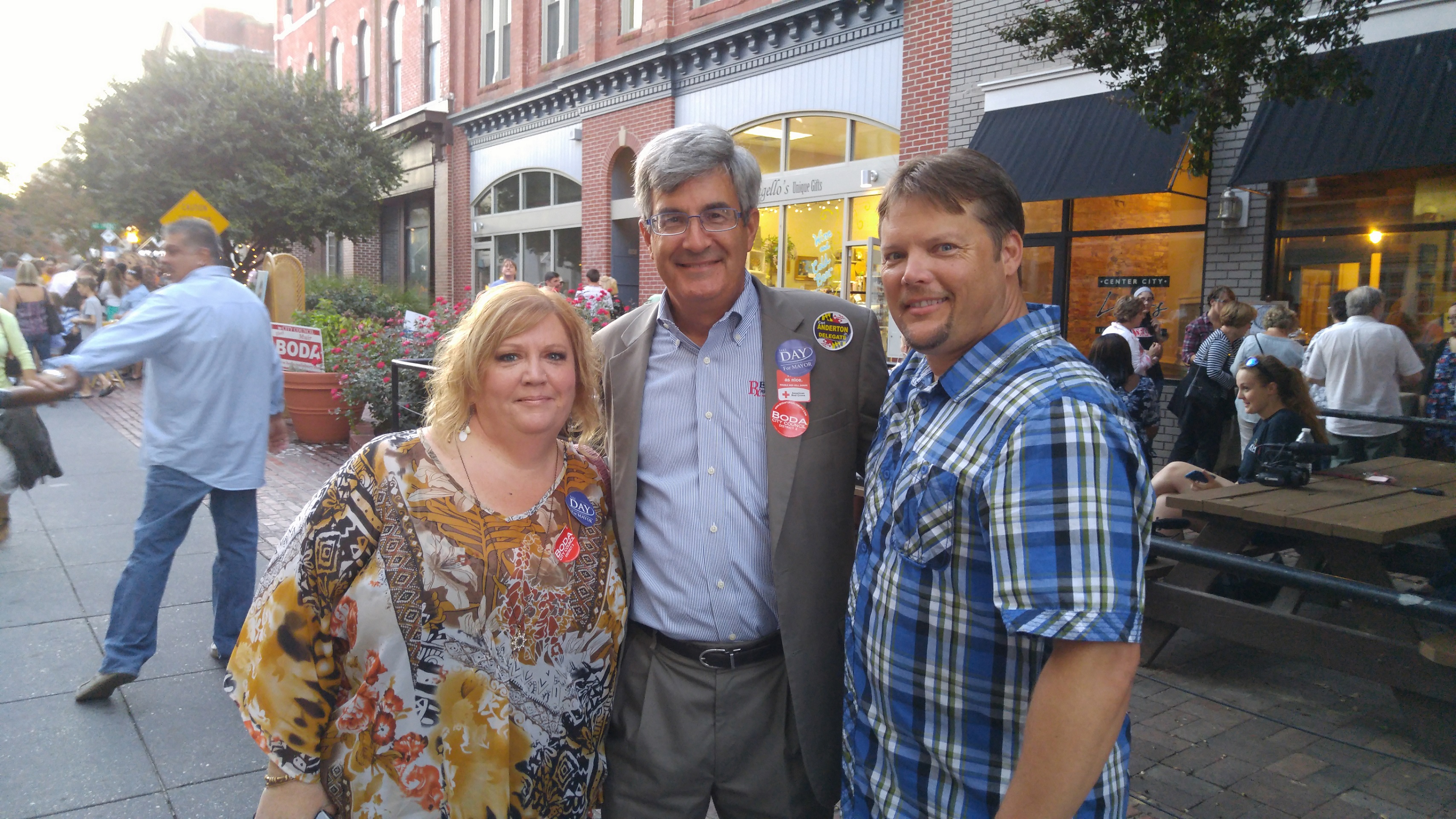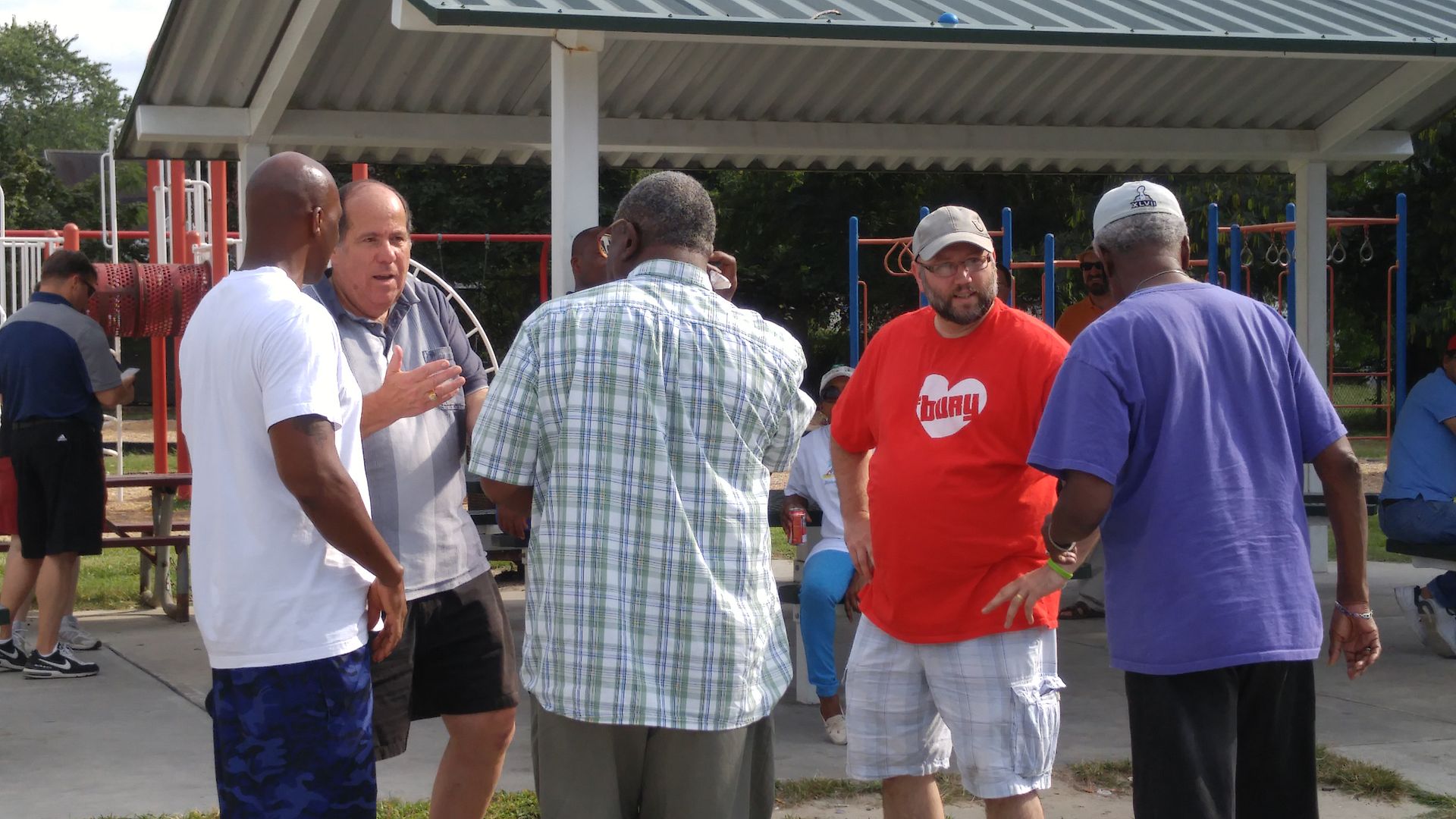Tonight the City of Salisbury embarked on a new chapter in its government as its City Council changed hands. Ironically, the person running the meeting at the beginning would shortly become the city’s mayor – Jake Day wielded the gavel for the last time, departing slightly from the agenda to ask for a moment of silence for the people of Paris.
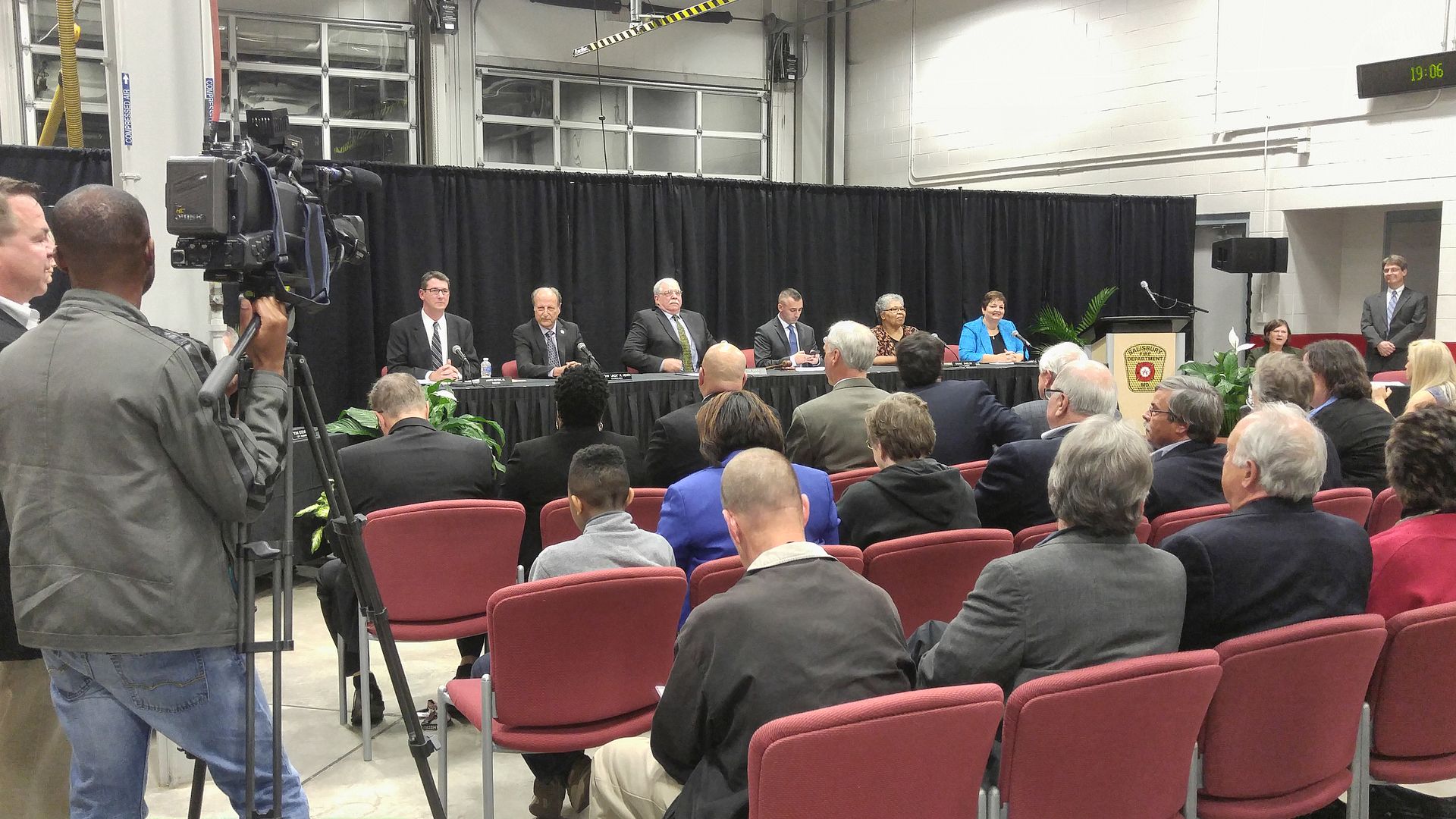
But the first to make comments was outgoing mayor Jim Ireton, who credited the “unsung heroes” who voted for him twice as mayor but “await(s) the incredible things we’ll do together” during the next four years. Ireton also noted later that changing just one person on council can make a profound difference in the body.
Jack Heath, who won election to a full term, noted he “came to know the power of the city and the goodness of its workers.” The man he defeated, Tim Spies, said the last 4 1/2 years were “good for me” and believed the city had a terrific future, with high expectations. He encouraged more people to make a Monday night of getting to Council meetings, adding afterward it was half-price burger night at the Irish Penny to cap off the evening. Public service for him was “fulfilling” with no end to opportunities, Spies said later.
Outgoing Mayor Ireton noted on Spies, “We would be well to have 33,000 Tim Spieses in the city.”
The other Council member leaving, Shanie Shields, vowed “I’m not going anywhere.” Not only would she be there for her successors, she planned on using her newfound time to make County Council meetings. In speaking of Shields, Ireton noted that the Salisbury he grew up in was a “place of 1,000 moms” and Shields was one of them. Shields, he added, reminded him never to forget our best work is ahead of us.
Noting the overflow crowd in the garage of Station 16, Laura Mitchell also hoped they would stay involved. “I would love to see more of this.” Day wrapped up that portion of the evening to noting Council had “exceeded my expectations.”
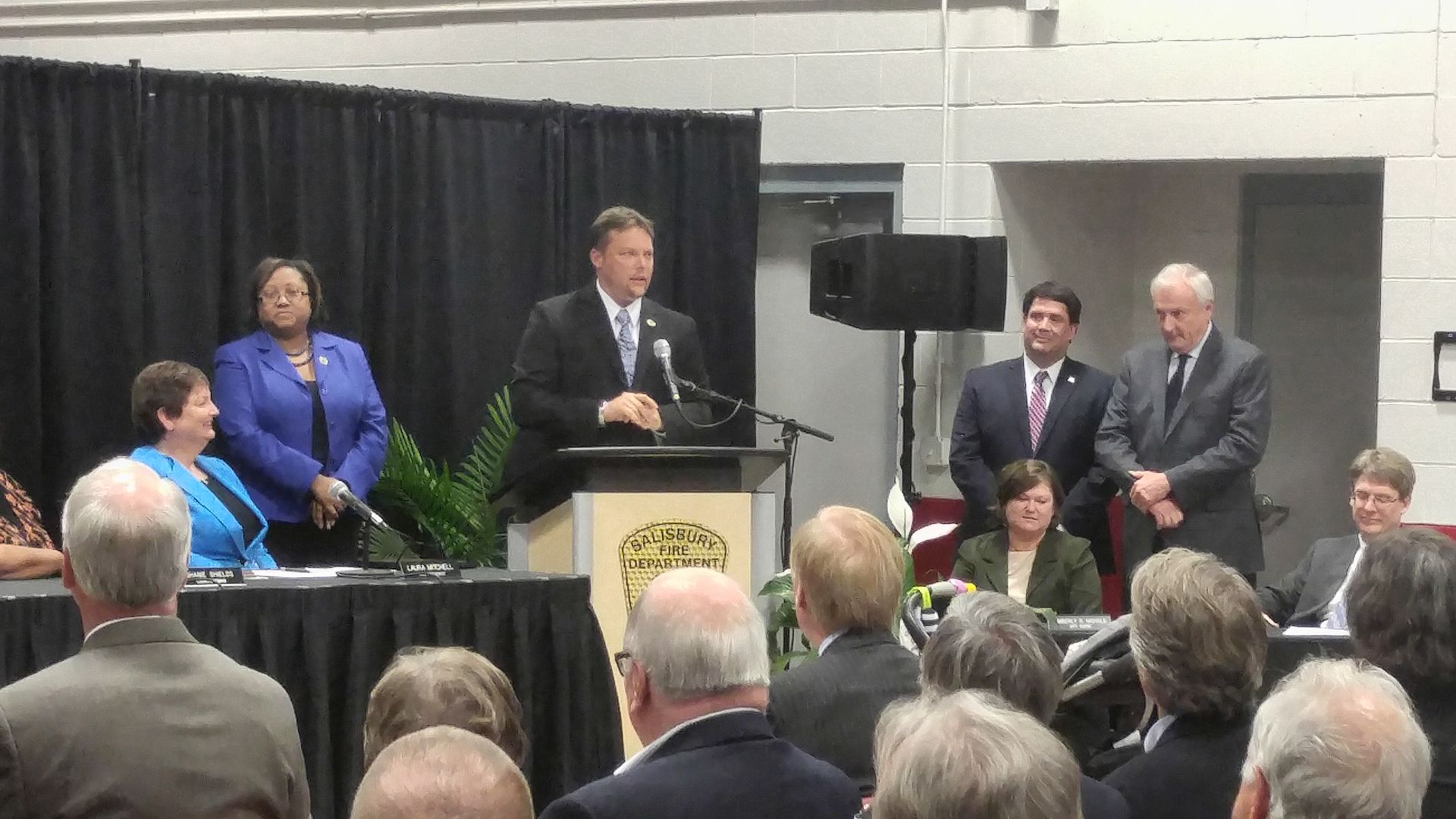
Ireton and Day, with help from Delegates Christopher Adams, Carl Anderton, and Sherrie Sample-Hughes, and Senator Jim Mathias, presented certificates to Shields and Spies. Anderton also revealed to the audience that Governor Larry Hogan had come through his cancer treatment successfully and was deemed cancer-free, which brought rousing applause from the gathering.
Once those who were leaving were honored, it was time to turn the page and swear in the new members. The Council went first, then Jake Day, with his wife and daughter by his side.
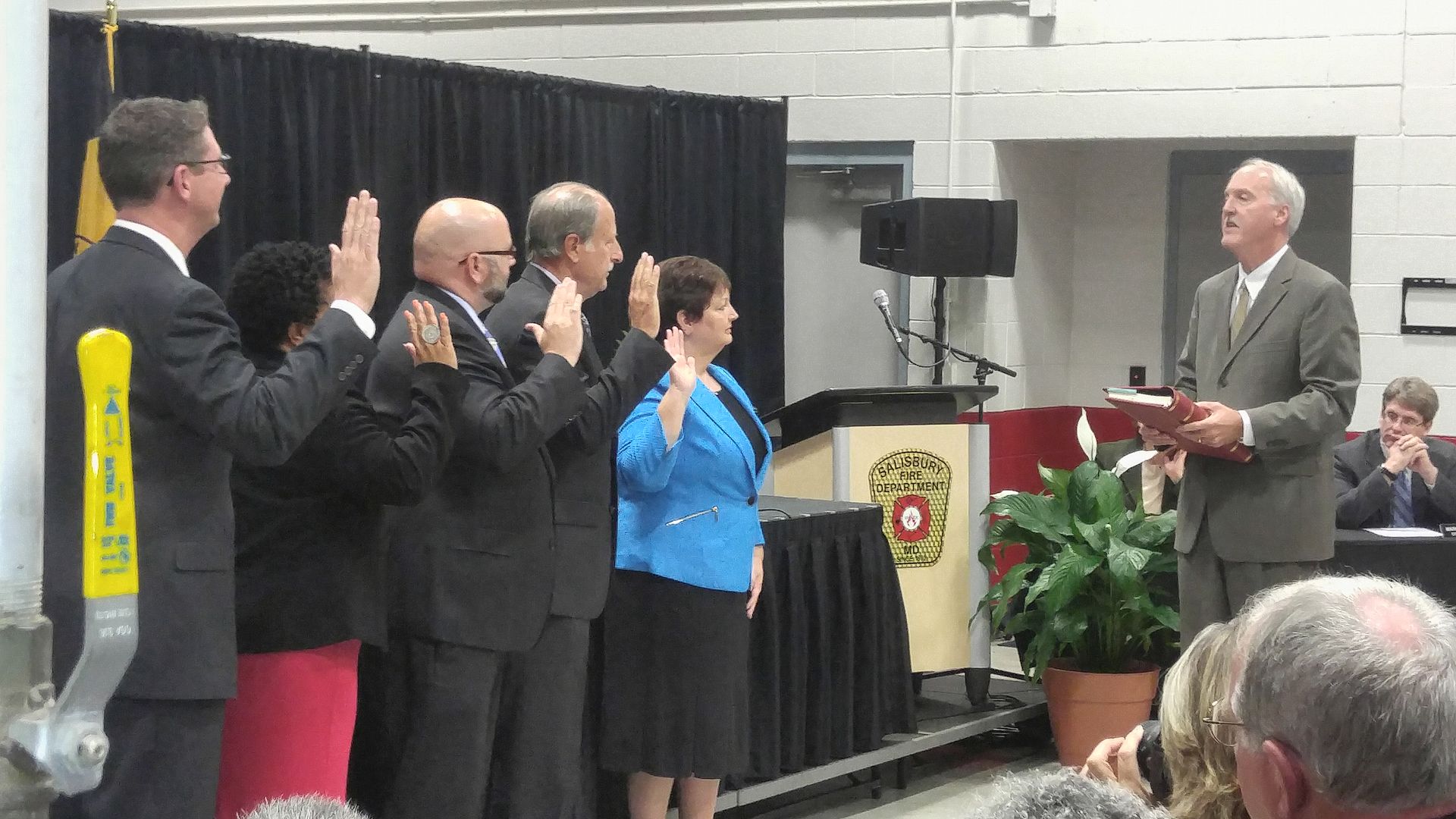
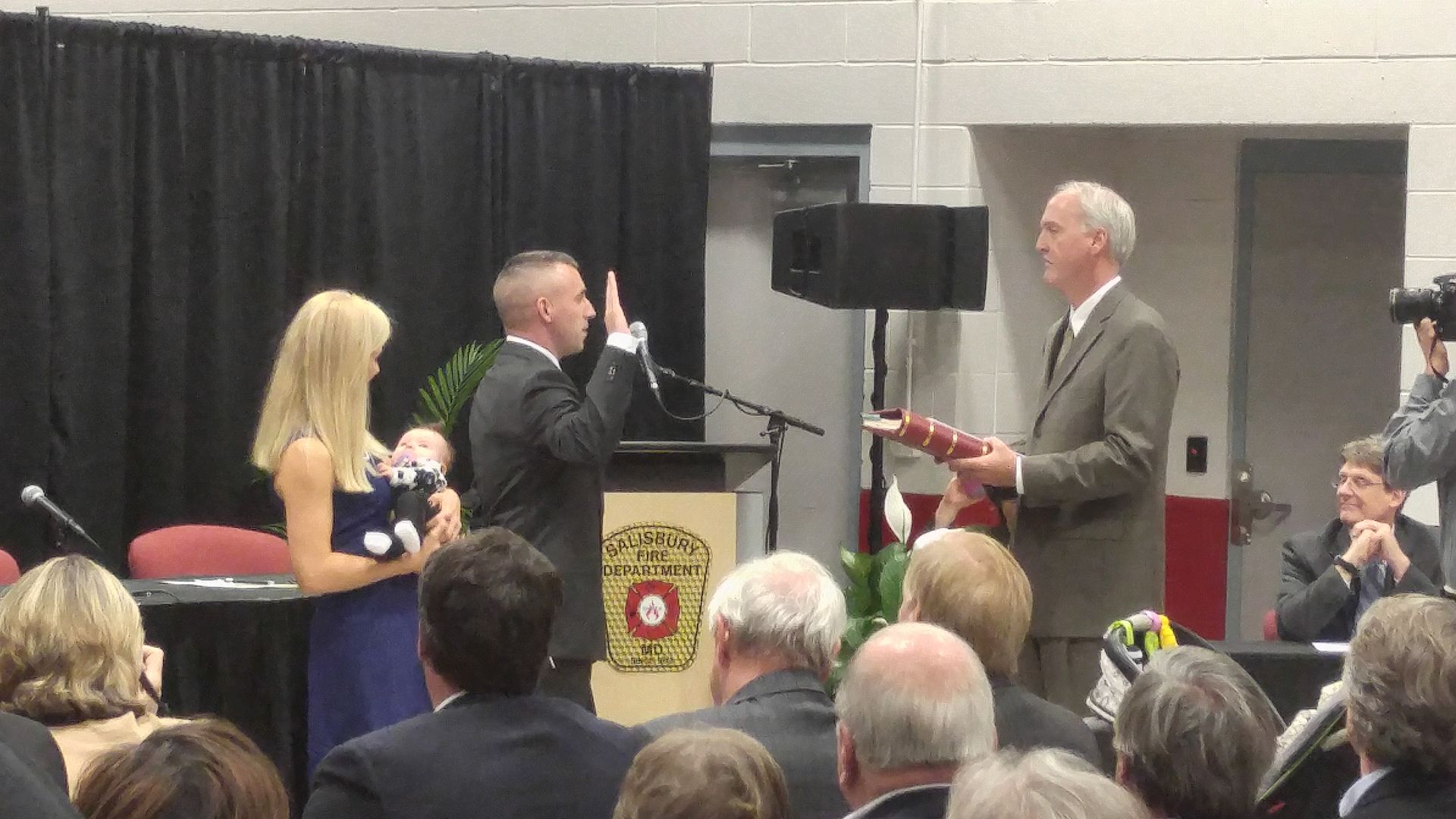
Our featured speaker was Comptroller Peter Franchot, who let us know “I’m a huge fan of Jake Day.”
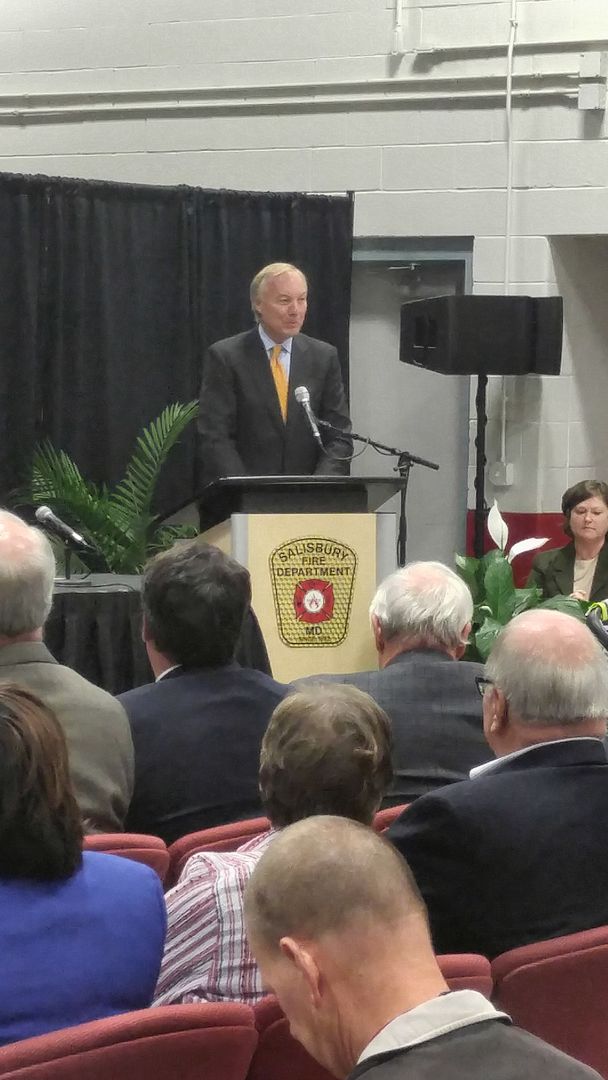
In his relatively brief remarks, he praised Salisbury as “a city on the rise” with “fresh talent (and) new energy.” We were crucial to the state’s economic fabric, concluded Franchot.
The Council did have a little work to do, though: electing officers. In what turned out to be uncontested votes by acclamation, Jim Ireton nominated Jack Heath to be Council president and Muir Boda nominated Laura Mitchell to its vice-president.
Once again, we heard remarks from the new Mayor and Council. Day made a laundry list of promises, concluding with a vow “we will give you a Salisbury we can be proud of.”
It was noted that Muir Boda had won after multiple tries for office, to which he responded, “I’m finally here.” Even though it was a long process for Boda, he was nowhere near as emotional as April Jackson, who choked up when she said, “I wish my dad could be here.” A well-known community leader, Billy Gene Jackson died earlier this year. Once she regained her composure, she told the crowd, “I’m ready to go. Not to go home, but to get to work!”
As the new Council President, Jack Heath said mutual respect and inclusion was “his pledge.” Once he spoke, he rapped the gavel and declared the meeting to be adjourned.
Because it comes on board at this point in the year, the Council will get to ease into its duties a little bit – the city’s budget isn’t due for a few months. But we will have crime and economic development to deal with, and that’s a pretty full plate as well.
I think they’ll do just fine. To wrap up, here’s a guy I’m proud to call friend, Muir Boda, and his wife Briggit.
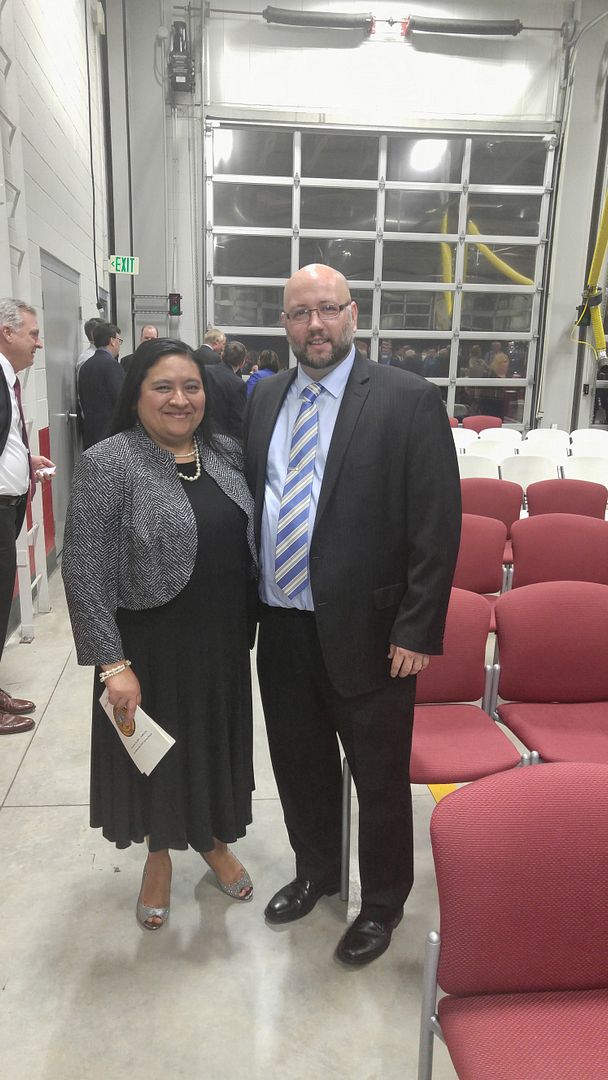
It took six years, but I’m pleased my support finally helped make him a winner. My advice to him? Get used to having your picture taken.
To borrow a phrase from Delegate Carl,Anderton, let’s get to work!


